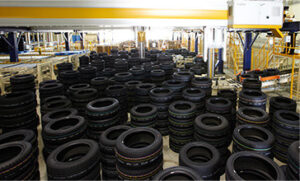US manufacturing grew in July
Tempe, AZ – Economic activity in the manufacturing sector grew in July, with the overall economy achieving a 26th consecutive month of growth, say the nation’s supply executives in the latest Manufacturing ISM® Report On Business®.
The report was issued by Timothy R. Fiore, CPSM, C.P.M., Chair of the Institute for Supply Management® (ISM®) Manufacturing Business Survey Committee:
“The July Manufacturing PMI® registered 52.8 percent, down 0.2 percentage point from the reading of 53 percent in June. This figure indicates expansion in the overall economy for the 26th month in a row after a contraction in April and May 2020. This is the lowest Manufacturing PMI® figure since June 2020, when it registered 52.4 percent. The New Orders Index registered 48 percent, 1.2 percentage points lower than the 49.2 percent recorded in June. The Production Index reading of 53.5 percent is a 1.4-percentage point decrease compared to June’s figure of 54.9 percent. The Prices Index registered 60 percent, down 18.5 percentage points compared to the June figure of 78.5 percent; this is the index’s lowest reading since August 2020 (59.5 percent). The Backlog of Orders Index registered 51.3 percent, 1.9 percentage points below the June reading of 53.2 percent. The Employment Index contracted for a third straight month at 49.9 percent, 2.6 percentage points higher than the 47.3 percent recorded in June. The Supplier Deliveries Index reading of 55.2 percent is 2.1 percentage points lower than the June figure of 57.3 percent. The Inventories Index registered 57.3 percent, 1.3 percentage points higher than the June reading of 56 percent. The New Export Orders Index reading of 52.6 percent is up 1.9 percentage points compared to June’s figure of 50.7 percent. The Imports Index grew again in July, up 3.7 percentage points to 54.4 percent from 50.7 percent in June.”
Fiore continues, “The U.S. manufacturing sector continues expanding — though slightly less so in July — as new order rates continue to contract, supplier deliveries improve and prices soften to acceptable levels. According to Business Survey Committee respondents’ comments, companies continue to hire at strong rates, with few indications of layoffs, hiring freezes or headcount reduction through attrition. Panelists reported higher rates of quits, reversing June’s positive trend. Prices expansion eased dramatically in July, but instability in global energy markets continues. Sentiment remained optimistic regarding demand, with six positive growth comments for every cautious comment. Panelists are now expressing concern about a softening in the economy, as new order rates contracted for the second month amid developing anxiety about excess inventory in the supply chain. Demand dropped, with the (1) New Orders Index contracting again, (2) Customers’ Inventories Index remaining at a low level but approaching 40 percent and (3) Backlog of Orders Index decreasing but still in growth territory. Consumption (measured by the Production and Employment indexes) was mixed during the period, with a combined positive 1.2-percentage point impact on the Manufacturing PMI® calculation. The Employment Index contracted for the third month in a row after expanding for eight straight months (September 2021 through April), but panelists again indicated month-over-month improvement in hiring ability in July. Challenges with turnover (quits and retirements) and resulting backfilling continue to plague efforts to adequately staff organizations. Inputs — expressed as supplier deliveries, inventories and imports — continued to constrain production expansion, but to a significantly lesser extent compared to June. The Supplier Deliveries Index indicated deliveries slowed at a slower rate in July, which was supported by an increase in the Inventories Index. The Imports Index continued to expand in July after one month of contraction preceded by six straight months of growth. The Prices Index increased for the 26th consecutive month, at a much slower rate compared to June.
“Four of the six biggest manufacturing industries — Petroleum & Coal Products; Computer & Electronic Products; Transportation Equipment; and Machinery — registered moderate-to-strong growth in July.
“Manufacturing performed well for the 26th straight month. There are signs of new order rates softening — cited in 16 percent of general comments, compared to 17 percent in June — as panelists are increasingly concerned about excessive inventories and continuing record-high lead times. Employment activity remained strongly positive in spite of the uncertainty with new order rates,” says Fiore.
Eleven manufacturing industries reported growth in July, in the following order: Apparel, Leather & Allied Products; Nonmetallic Mineral Products; Petroleum & Coal Products; Printing & Related Support Activities; Computer & Electronic Products; Transportation Equipment; Machinery; Textile Mills; Primary Metals; Plastics & Rubber Products; and Electrical Equipment, Appliances & Components. The seven industries reporting contraction in July compared to June, in the following order are: Wood Products; Furniture & Related Products; Paper Products; Miscellaneous Manufacturing; Fabricated Metal Products; Food, Beverage & Tobacco Products; and Chemical Products.

